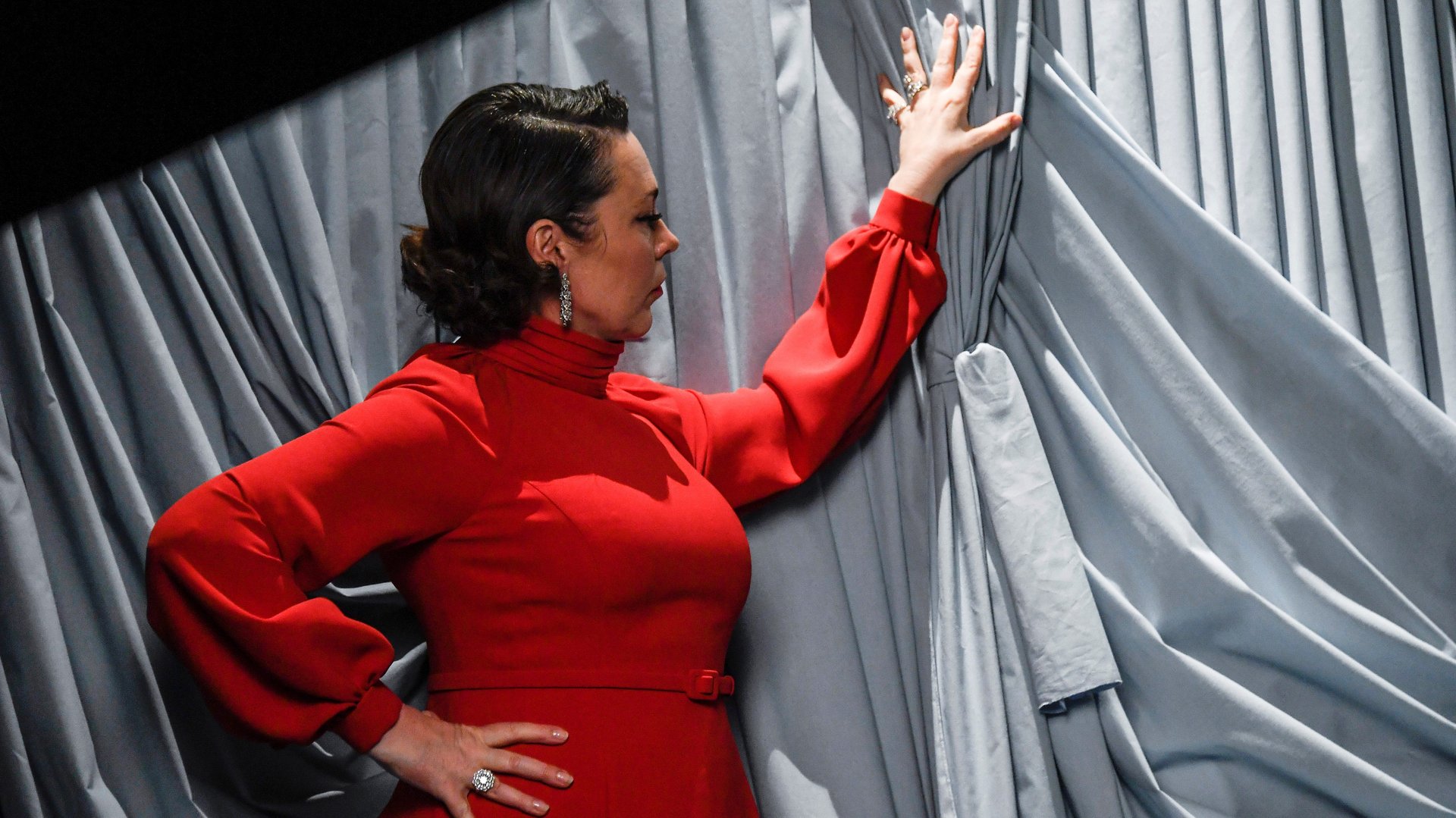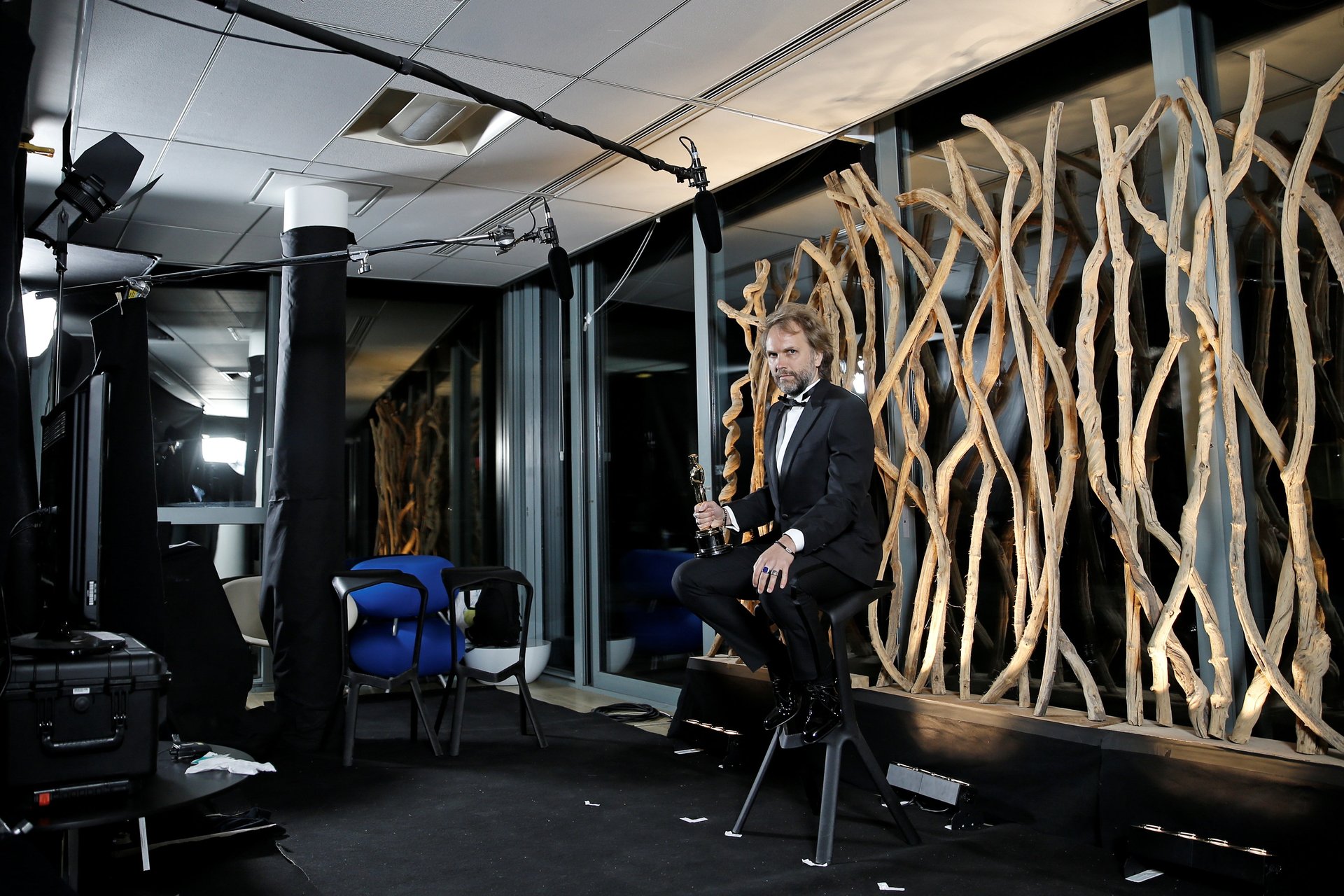Even the Oscars are sick of Zoom
After more than a year of pandemic, a lot of people are sick of Zoom—including the organizers of the 93rd Academy Awards.


After more than a year of pandemic, a lot of people are sick of Zoom—including the organizers of the 93rd Academy Awards.
The Oscars were held yesterday (April 25), with some twists:
- The organizers had epidemiologist consultants
- The set looked like a retro dinner party
- The ceremony was filmed like an actual movie
- The $200,000 swag bags included a copy of an NFT rendering of the late actor Chadwick Boseman
- And the ceremony was held in-person in two Los Angeles locations.
Initially, the organizers had a strict no-Zoom rule: In mid-March, producers Steven Soderbergh, Jesse Collins, and Stacey Sher encouraged nominees to travel to LA, and said “there will not be an option to Zoom in for the show.”
“We are going to great lengths to provide a safe and ENJOYABLE evening for all of you in person, as well as for all the millions of film fans around the world,” they wrote, “and we feel the virtual thing will diminish those efforts.”
That decision made some sense: Viewership of the 78th Golden Globes, held on Zoom in February, was the lowest it’s been in 13 years. That was probably due in part to a scandal surrounding the lack of diversity of the Hollywood Foreign Press Association, which organizes the Golden Globes. But it’s also a reminder that fans tune in to these things for the glamor, not necessarily to see Jodie Foster in pajamas. The sound glitches didn’t help.
(Awards shows’ ratings have also plunged across the board as audiences turn away from live TV.)
With its no-Zoom rule the Academy of Motion Picture Arts and Sciences, the professional association that puts on the Oscars, likely hoped to avoid a repeat of all of that—and not just by submitting its most diverse nominations ever. But the rule was controversial from the start, with overseas Oscar nominees pointing out that it wouldn’t be possible for them to take part in person, either because their countries banned non-essential travel, or because the costs of a trip to LA and a 10-day quarantine would be too much. So the organizers set up two overseas hubs for nominees in Paris and London.

Virtual ceremonies are risky—they can come off as stale and a poor connection can throw everything off. So the Academy put in places some safeguards: Quartz’s Adam Epstein writes that the virtual speeches weren’t broadcast on Zoom, but rather ”via satellite link so that the producers [could]control every aspect of the broadcast seamlessly and without technical hiccups.”
Hosting a hybrid virtual-and-in-person event allowed overseas nominees to take part in what is typically considered a career peak: Florian Zeller and Christopher Hampton, who co-wrote The Father, accepted their Oscar for best adapted screenplay from Paris and London, respectively. It may also serve as a template for future awards ceremonies.
Still, when going virtual, not everything can be fixed with a satellite. The Academy had to contend with time difference when it accepted an Oscar for best actor on behalf of Anthony Hopkins—who was asleep in his bed in Wales.